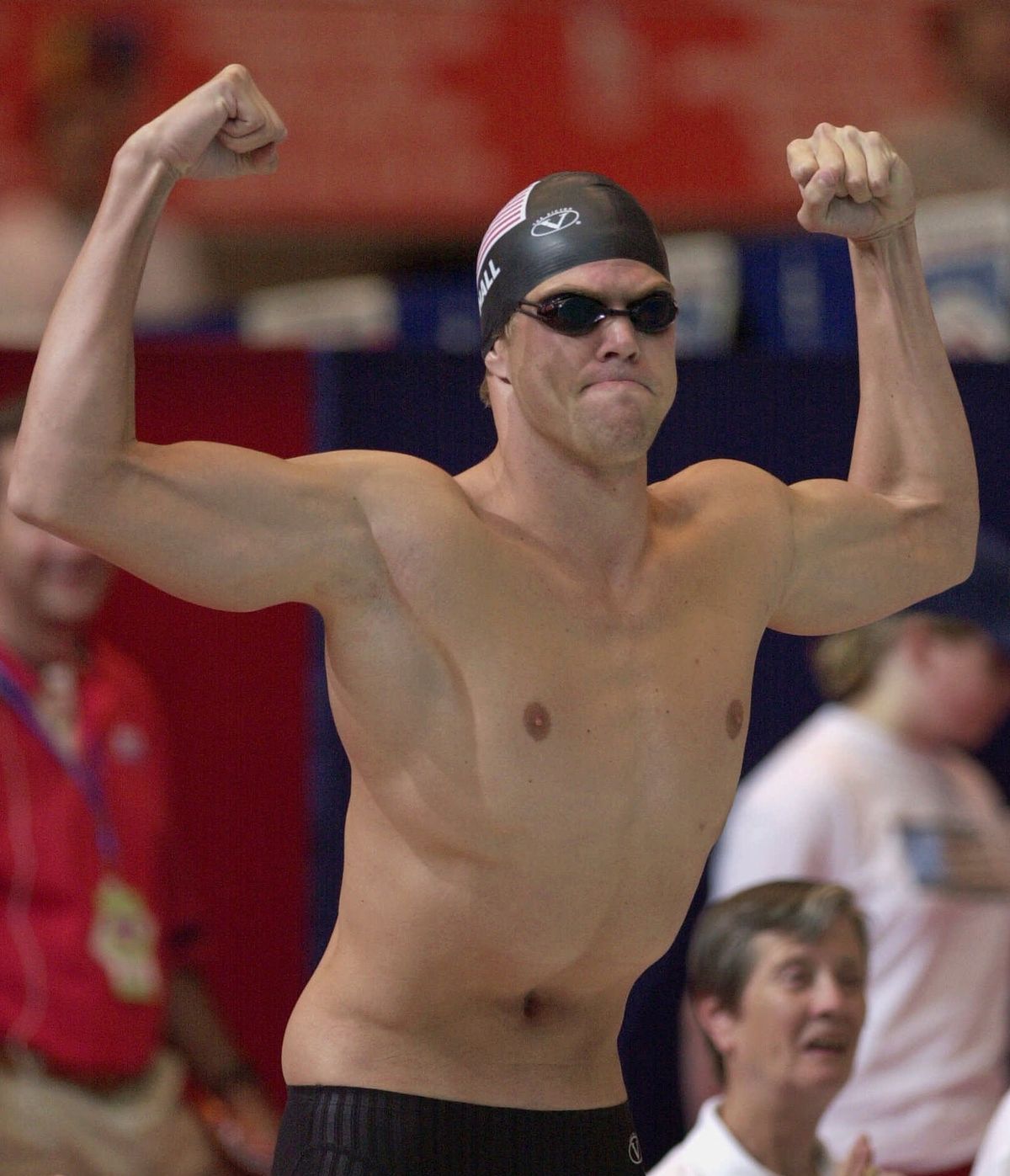Hall moves on
3-time Olympian helps fellow diabetics

SEATTLE – Wade Bartlett was sitting there in the sauna, minding his business, letting the hot water pull out some of the pain of a swim workout at Medgar Evers Pool in Seattle’s Central District.
A tall guy seated nearby seemed somehow familiar: sculpted shoulders and long wing span. A trace of sun-bleached hair. And then the giveaway – a telltale shoulder tattoo of a “sea griffin,” the emblem of The Race Club, a Florida Keys training enclave for the world’s elite swimmers.
Flashing back, Bartlett could see the same brash guy at three Olympic Games, busting out of a red, white and blue boxing robe and flexing his biceps on the pool deck in Atlanta, Sydney and Athens.
“Oh, my God,” Bartlett thought to himself. “That’s Gary Hall!”
After a quick introduction, Bartlett summoned his daughter, Evelyn, 6, and pointed out the Olympic legend.
“Here’s the fastest man in the world,” he said.
To which Hall smiled appreciatively and said, “Not anymore.”
The sighting of Gary Hall Jr., the colorful, 10-time Olympic medalist and one of the world’s all-time great sprint swimmers, in an urban community pool was no fluke, and in fact has become a regular occurrence. Hall, 36, moved to Seattle a year ago, pursuing a post-athletic career in brokering U.S. medical and dental supplies to what he hopes will become an exploding market in China and Europe.
It’s all part of his devotion to combating the effects of diabetes, which he was diagnosed with himself at the peak of his swimming career a decade ago. He is director of business development for b2d Marketing.
In an odd way, Hall received a boost from his health problem. His 1999 diagnosis of type 1, or insulin-dependent, diabetes shook him to the core and threatened to end his swimming career.
Rather than throw in the towel, he became an expert at his ailment, learning to juggle insulin treatments and grueling workouts in a way few others have accomplished.
Not only did Hall keep swimming, he improved, winning gold medals in the 50-meter freestyle, swimming’s hotshot drag race, in both Sydney and Athens after being diagnosed with the disease.
Hall also became active in the national and local diabetic community, serving on medical boards and foundations that work to prevent the disease, particularly in children. Networking in those groups led him to his current work brokering medical and dental supplies – all related in some way to diabetic health.
His defiant Olympic success and cocksure public persona – he was fined $5,000 by USA Swimming for wearing a stars-and-stripes boxing robe on the pool deck before his gold-medal race in Athens – made him a hero to diabetics around the globe.
Hall likes knowing that patients overseas are receiving overdue attention for diabetic-related ailments.
“I’m going to drive this thing forward,” he said.
The impressive thing about Hall always has been that, beneath the costumes, gold medals and hyperbole, lives a complex character who always understood, even at the peak of his success, that life was a whole lot larger than sport. Now he has proved to be something even more rare: a champion savvy enough to figure out not only when, but how, to move on.
“I’ve always maintained that I’ve had this life and other interests outside of swimming,” he said. “It’s time to pursue it, with the same dedication. I would like to create something meaningful – something that has an impact on life.”